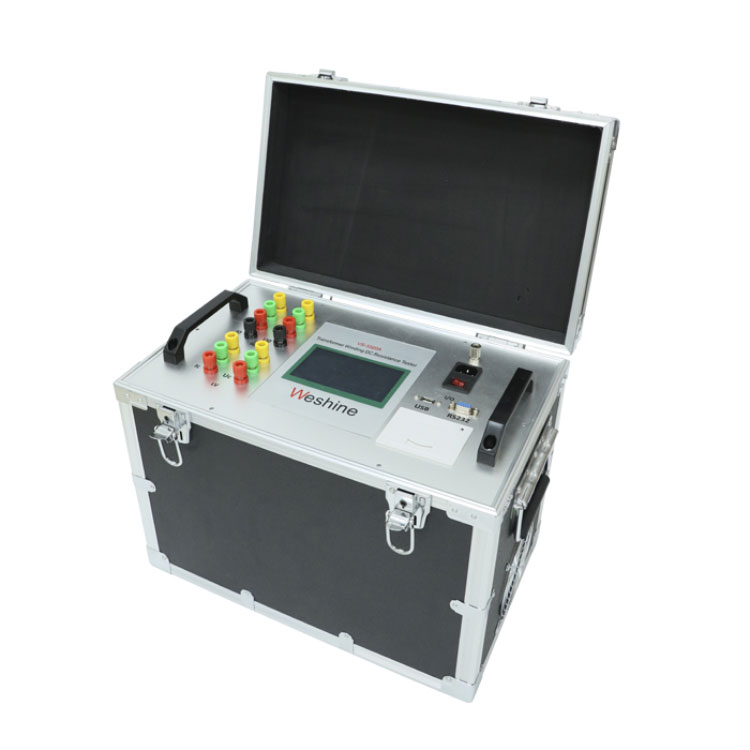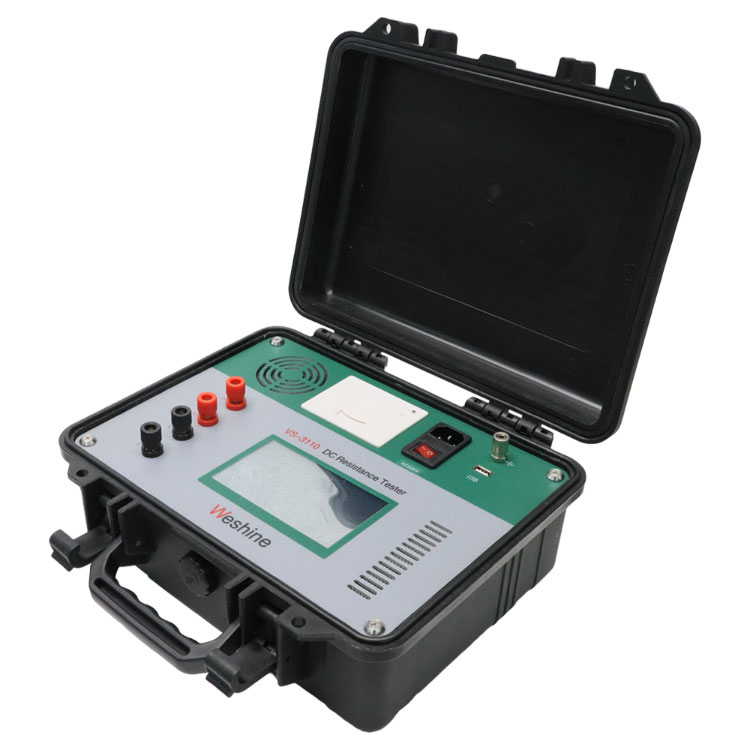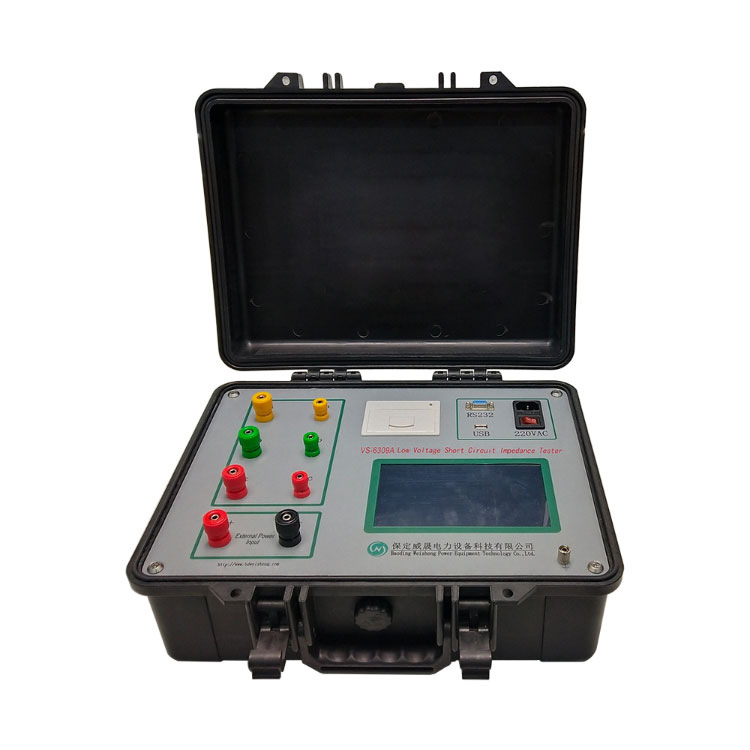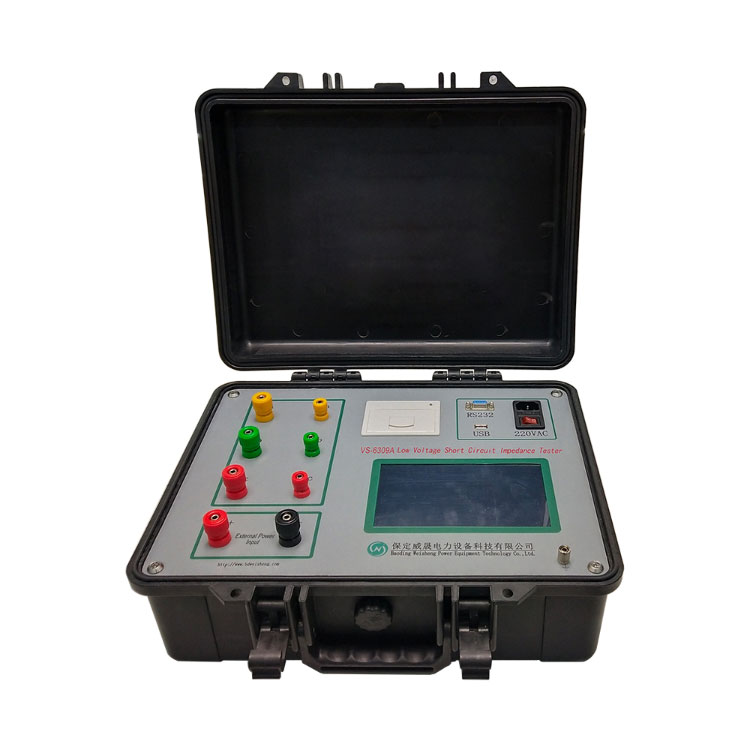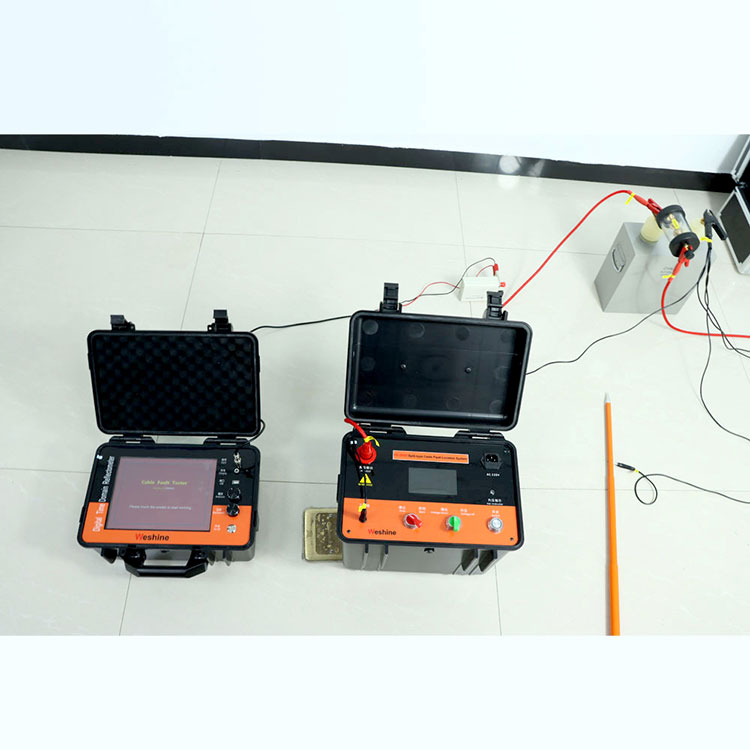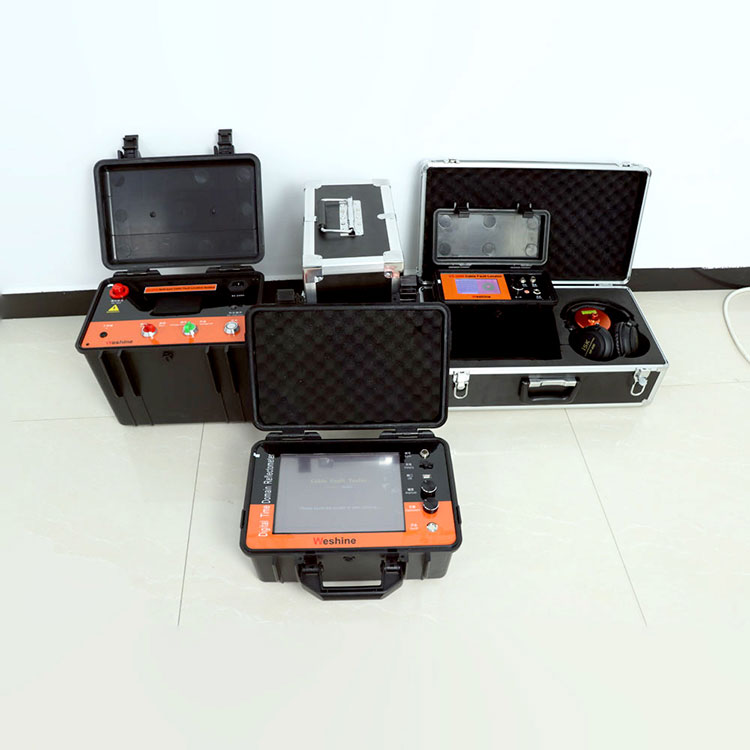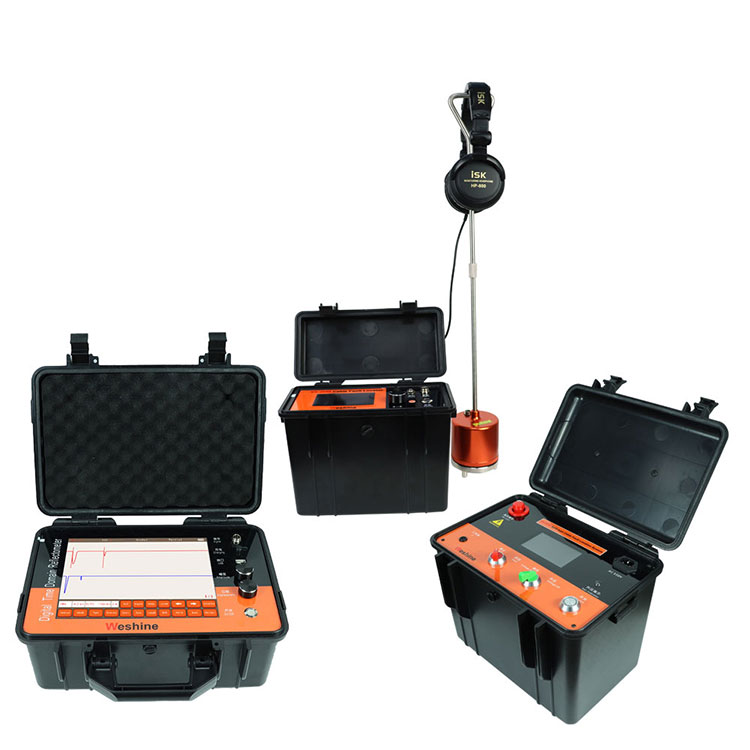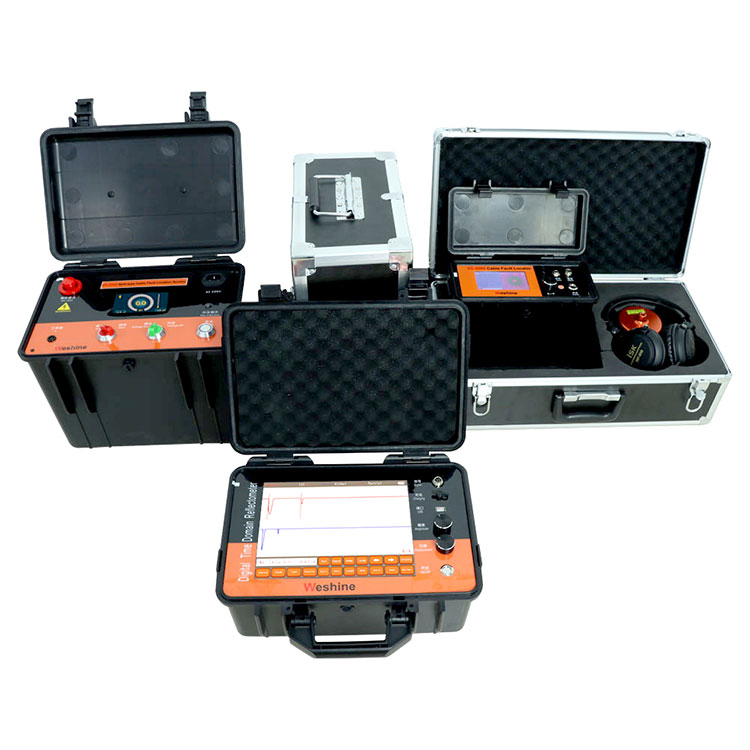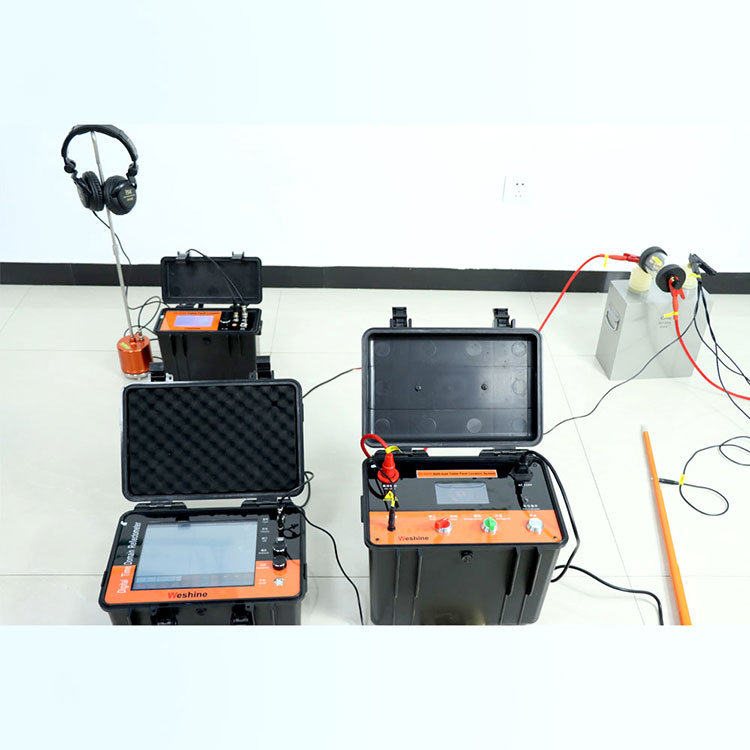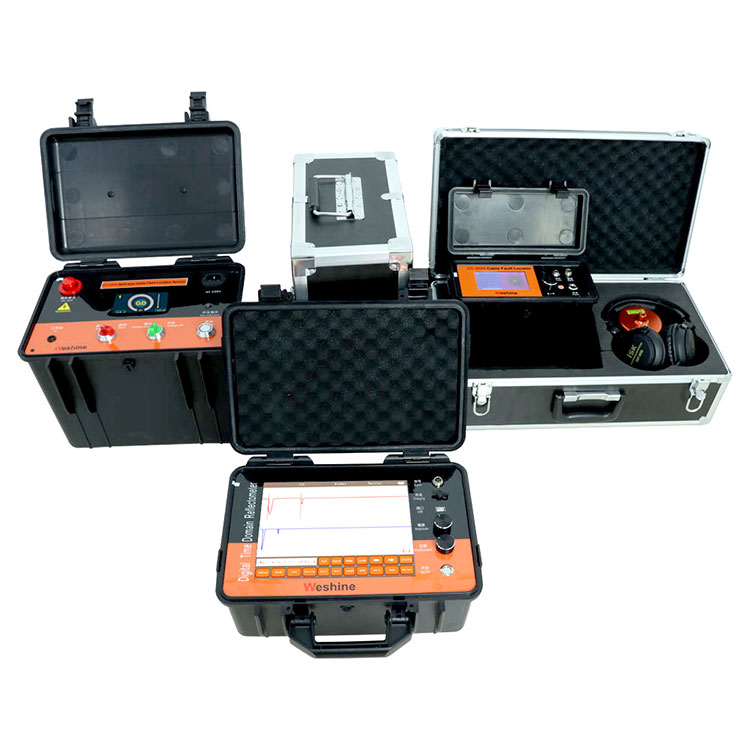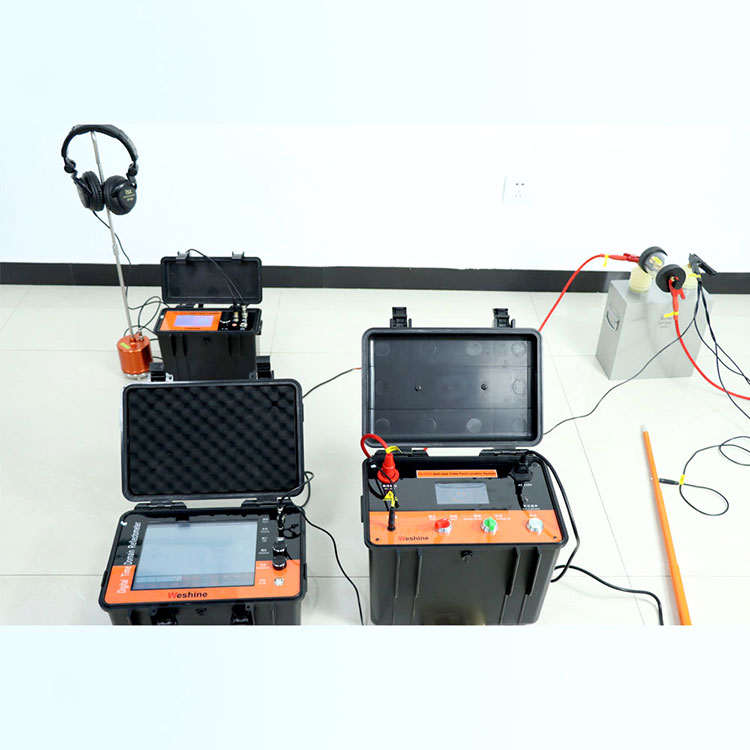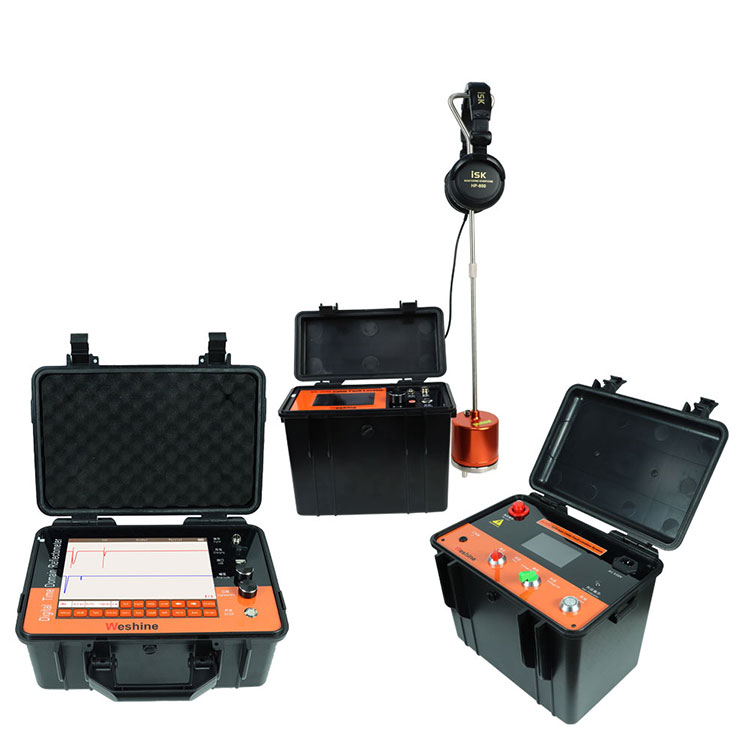
- English
- Español
- Português
- русский
- Français
- 日本語
- Deutsch
- tiếng Việt
- Italiano
- Nederlands
- ภาษาไทย
- Polski
- 한국어
- Svenska
- magyar
- Malay
- বাংলা ভাষার
- Dansk
- Suomi
- हिन्दी
- Pilipino
- Türkçe
- Gaeilge
- العربية
- Indonesia
- Norsk
- تمل
- český
- ελληνικά
- український
- Javanese
- فارسی
- தமிழ்
- తెలుగు
- नेपाली
- Burmese
- български
- ລາວ
- Latine
- Қазақша
- Euskal
- Azərbaycan
- Slovenský jazyk
- Македонски
- Lietuvos
- Eesti Keel
- Română
- Slovenski
- मराठी
- Srpski језик
Underground Cable Fault Distance Locator
Weshine® invented the Underground Cable Fault Distance Locator with CE certificate, high quality and accuracy, Invented and produced according to national standards, complete electric testing solution available. Contact us for more details of Underground Cable Fault Distance Locator from Weshine!
Send Inquiry PDF DownLoad
What should you do when there are cable faults?

Most cable fault you can't see it by eyes, so you need the location system of the cable fault. This is a multi-step process that needs to be done as safely and quickly as possible, as power is not available to the customer.
Step 1. Cable separation and security measures: Cable failure is almost always irreversible. This means that the cable in question has tripped a protective device at one or both ends of the cable and the cable is insulated and not grounded (ungrounded).
The first task is to secure the cables by qualified personnel. Before grounding, it is recommended to insulate one or both ends. Only by following the proper procedures can the tester approach the cable and prepare it for testing.
Step 2. Cable identification: If there are multiple cables, the cable identification test determines the correct cable to use. Clear identification of cables before cutting them is essential for safe maintenance work. Errors here can be fatal and lead to even longer disconnections of connected clients.
Step 3. Tracing the cable: When underground cables are first laid, they rarely run in a straight line, but curve in depth and direction. A cable trace is performed to ensure that the cable route follows the expected path.
Step 4. Fault Identification: The first important step is to identify the faulty phase and determine if it has a low or high resistance.
This test determines the correct methods and equipment for fault diagnosis. Typically, if the noise is less than 100 ohms, a low voltage pulse (eg 40 V) from a TDR (Time Domain Reflectometer) can be used. Faults are associated with higher resistance (> 100 ohms) and may not be detected with low voltage pulses. For such failures, a shock generator (shock discharge) is required.
Step 5. Preliminary determination of the location of damage: To locate cable faults quickly and effectively, you need a reliable and accurate pre-detection method (by Weshine® Underground Cable Fault Distance Locator). Early detection of serious faults can be localized within a few percent of the cable length, reducing isolation time to minutes.
Remember:
a) For low resistivity faults, pre-localization was probably the only option.
b) In case of high resistance short circuit, ARM (arc reflection) or ICE (pulse current) must be used with SWG (pulse wave generator). location in advance.
Step 6. Pinpoint: The test method described above allows the operator to be within 5% of the obstacle. To narrow error bars to 0.1%, the acoustic accuracy method should be used. Most often, shock discharge generators are used for identification in combination with acoustic methods. The electrical discharge creates a loud noise that can be accurately identified using acoustic identification equipment. This device evaluates the time difference between the acoustic signal (speed of sound) of an impact and an electromagnetic (close to the speed of light) pulse. The exact location of the fault is determined by indicating the smallest time difference.
Step 7. Reconnect the cables: Upon completion of all tests and repairs, the safety/test documentation will be cancelled. The cables are then returned to the appropriate operators for repair and reconnection of the newly repaired cable loads.

Product Introduction

Electrical networks had to become more flexible, respond quickly to changes and demand better performance. This need for flexibility is especially important when there are multiple sources of power generation, such as intermittent power from renewable sources such as solar and wind. Today his SMART grid technology can quickly identify faults in substations and generator sets, but cable faults can occur anywhere in the network. Finding cable faults quickly for repair is a top priority to avoid long recovery times (through Weshine® Underground Cable Fault Distance Locator could done easily). First of all, this affects reliability indicators, especially in the power industry. These metrics include the SAIDI (the System Average Interruption Duration Index), which measures the total duration of an average client interruption over a period of time, and the SAIFI (the System Average Interruption Frequency Index). It is calculated by dividing the total number of clients. Interrupted by the total number of clients served.
Weshine® Underground Cable Fault Distance Locator Parameter (Specification)
|
PRODUCT INFORMATION |
|||
|
Product Name |
Split-type Underground Cable Fault Distance Locator |
||
|
Model Number |
VS-2088 |
Certificates |
CE; EMC; LVD; ISO; |
|
Measuring Distance |
60 km |
Blind Area |
<1 m |
|
Measuring Method |
Low-voltage pulse method, flash current method, multiple pulse method. |
||
|
Product Function |
Locate cable faults below 35 kV. |
||
|
Typical Application |
Power cable, street lamp cable, airport signal cable, railway communication control cable... |
||






THE STEPS TO DETECT CABLE FAULT ARE AS FOLLOWS:

Selections
Weshine has 8 years of experience specifically for deal with complete range of Electrical Equipment. At present, Weshine has invented various Underground Cable Fault Distance Locator for each step as shown as form:
|
RELATED PRODUCT INFORMATION OF Underground Cable Fault Distance Locator |
||
|
Cat. No. |
Product Name |
Typical Application |
|
VS-2089 |
Cable ldentifier |
Where multiple cables exist, cable identification testing will identify the correct cable to work on. |
|
VS-2082 |
Split-box Cable Path Locator |
Cable tracing is done to determine thatthe route of the cable is following the expected path. |
|
VS-2088-TDR |
Time Domain Reflectometer(TDR) |
If it is a low resistance fault, pre-location was likely to be the only means necessary for location. |
|
VS-2088-HVPG |
High-Voltage Pulse Generator(HVPG) |
For high resistance faults, ARM(arc reflection) or ICE(impulse current) techniques on an SWG(surge wave generator) should be used. |
|
VS-2088-P |
Acoustic Pinpointing Device |
The discharge creates a loud noise, which is pinpointed precisely using an acoustic pinpointing device. |
|
VS-CLXZ |
AC Resonating HiPot Tester |
It is especially suitable for the withstand voltage test of power cables. |
|
VS-VLF |
0.1Hz AC VLF HIPOT TESTER |
VLF testers are smaller and more practical than AC testers but output the same amount of power as a 50 Hz mains device. |
Based on Supply Chain issues: Please contact your preferred Authorized Weshine Distributor for current pricing and lead times. Weshine provides each customer with the most complete cable fault test solution.
Quality Certificates
We always believe that all the success of our company is directly related to the quality of the products we provide. Underground Cable Fault Distance Locator meet the highest quality requirements specified in ISO9001, ISO14000:14001 guidelines and our strict quality control system.

Shipment

For further information on Weshine's Service Solutions, contact our 24/7 online sales representative to get quotes from Weshine.
Contact us
|
FEEL FREE TO MAKE A PHONE CALL:400 996 1868 |
OR E-MAIL TO: info@weishengelectric.com |
|
SALES OFFICE Weshine Limited 602, Building 3, Diangu Technology Center, No. 3088, Lekai North Street W/app: +86 1873 1260 588 E. info@weishengelectric.com sale01@weishengelectric.com
|
CONTACT OFFICE T. 0312 3188565 E. bdweisheng@weishengelectric.com
AFTER-SALES SERVICE T. +86 157 1252 6062
|

